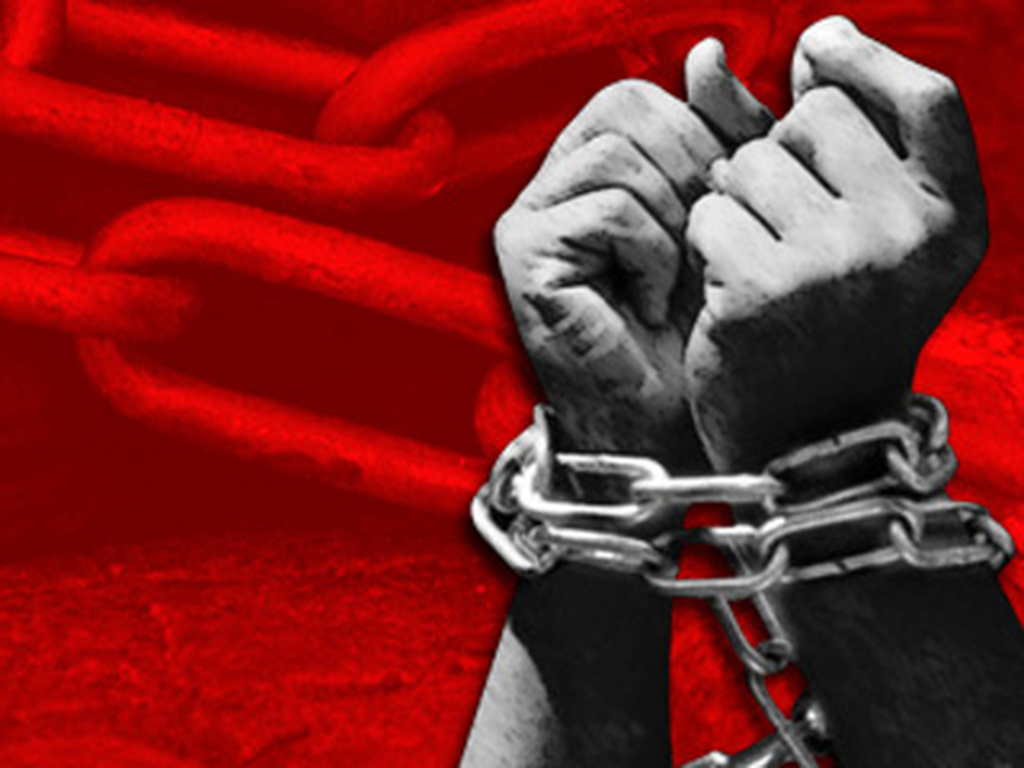
Freedom or Slavery?
Slavery is defined as a property right in the labor of other men. If you own a slave, it means that he must work for you. Very obviously, through taxation, civil government now owns about half of us, and this means that we are half slaves, whatever else we may call ourselves.

- R. J. Rushdoony
Chalcedon Report No. 203, July 1982
One of the interesting facts about the United States is the amount of land owned by the federal government. In Alaska, 90 percent of the state is federally owned; in Nevada, it is 87 percent, Utah, 65 percent; Idaho, 64 percent; Oregon, 52 percent; Arizona, 45 percent; California, 44 percent, and so on down the line. Supposedly, these lands are kept in trust for the people, but in reality private conservation groups and corporations have done and can do a better job of it.
But this is not all. We need to ask the question, how much of us do the federal, state, and local agencies of civil government own? About five to ten years ago, we were told that between 40 percent to 45 percent of our income went for direct or hidden taxes; some now place that estimate at 50 percent to 60 percent. Whichever figure is right, it constitutes a very big share of our income.
Slavery is defined as a property right in the labor of other men. If you own a slave, it means that he must work for you. Very obviously, through taxation, civil government now owns about half of us, and this means that we are half slaves, whatever else we may call ourselves.
When the federal government, more than a century ago, abolished slavery, it abolished only the private ownership of slaves, not public ownership. If fact, all over the world, slavery is more common than ever before. In the communist bloc, all the people are slaves of the state. In the democracies, we are half slaves and half free.
What we need is an emancipation proclamation from slavery to the modern state. You can be sure that neither Washington, D.C., nor the state house will issue any such charter of freedom on its own. Only if we, the people, compel them to do so will the various branches of civil government disgorge their powers over us.
We may think we belong to ourselves, our family, our church, or our community, but, with every paycheck, we are reminded that we belong to Washington, D.C., and, before we see our paycheck, Big Brother has put the bite on us.
The plain fact is that the modern state owns too much of us. Instead of being our servant, it has become our master, and we have steadily been stripped of our assets and our freedom. Very definitely, it is time for a change.
To gain that change, we must be changed. As Paul says, “where the Spirit of the Lord is, there is liberty” (2 Cor. 3:17).

- R. J. Rushdoony
Rev. R.J. Rushdoony (1916–2001), was a leading theologian, church/state expert, and author of numerous works on the application of Biblical law to society. He started the Chalcedon Foundation in 1965. His Institutes of Biblical Law (1973) began the contemporary theonomy movement which posits the validity of Biblical law as God’s standard of obedience for all. He therefore saw God’s law as the basis of the modern Christian response to the cultural decline, one he attributed to the church’s false view of God’s law being opposed to His grace. This broad Christian response he described as “Christian Reconstruction.” He is credited with igniting the modern Christian school and homeschooling movements in the mid to late 20th century. He also traveled extensively lecturing and serving as an expert witness in numerous court cases regarding religious liberty. Many ministry and educational efforts that continue today, took their philosophical and Biblical roots from his lectures and books.